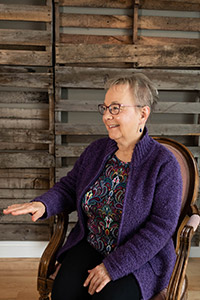Intimate Partner Abuse Therapy
Intimate partner abuse is the systematic use of verbal, psychological, physical, and/or sexual abuse to have power and control over a partner (whether dating, living together, or married).
Coercive control is interchangeably used with abuse, violence, controlling behavior, and intimate partner abuse. I like to use it because it better describes the experience of many victims. Evan Stark defined it in his book, Coercive Control.
“Coercive control is a strategic course of conduct designed to retain privilege and establish domination in personal life based on fear, dependence, and the deprivation of basic rights and liberties.”
The motivation for all these types of abuse is the desire to control and dominate. If you believe you or another person is in a controlling relationship, you might find it helpful to look over the Coercive Control Checklist.
Intimate abuse misuses the power inherent in an intimate relationship. We are naturally more vulnerable to abuse because of the nature of intimacy. We expect love and respect from partners and their behavior puzzles and shocks us. Abusive partners usually lack empathy and have trouble acknowledging they have a problem.
How does intimate abuse affect people?
Any kind of trauma, especially that of intimate abuse, affects us emotionally, mentally, physically, behaviorally, and spiritually. Often survivors feel puzzled about how they are affected. They often report that they feel like they have lost themselves.
Abuse can result in psychological trauma when the ability to cope is overwhelmed. Some abuse and trauma experiences result in the development of Post-traumatic Stress Disorder. If you are wondering whether you are experiencing Post-traumatic Stress Disorder, you can go to the Post-traumatic Stress Disorder article to see a list of symptoms.
Common injuries from coercive controlling behavior include:
- Confusion over what has happened and why
- Battered self-esteem
- Grief
- Loss of trust in self
- Difficulties setting healthy boundaries
- Flashbacks, nightmares, and intrusive memories
- Anger
- Uncertainty over what to do next
If you identify with any of these, you are not alone. You are not responsible for how your partner acts. Please reach out for support by contacting your local domestic abuse program. If you want a therapist, they can offer suggestions about therapists who are knowledgeable and trained in this.
What about services for those who abuse?
For those who recognize characteristics of controlling behavior in themselves, there are psychotherapists that compassionately help you to change your behavior. Everyone who chooses to hold themselves accountable can learn new behavior.
You will benefit from investing in yourself and choosing to end the cycle of abuse in your family. Contact domestic violence support programs for information regarding specialized programs to assist you.

Make an Appointment with Jennifer
My office is located at
406 N. Pinckney St., Madison, WI.
Please call 608-255-8838, ext. 6
or email me for an appointment.

